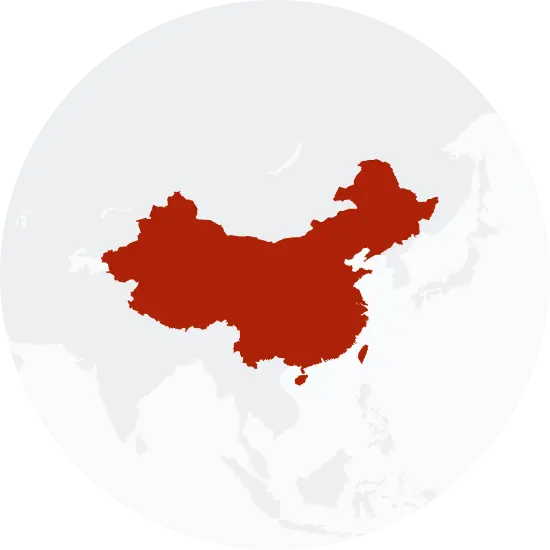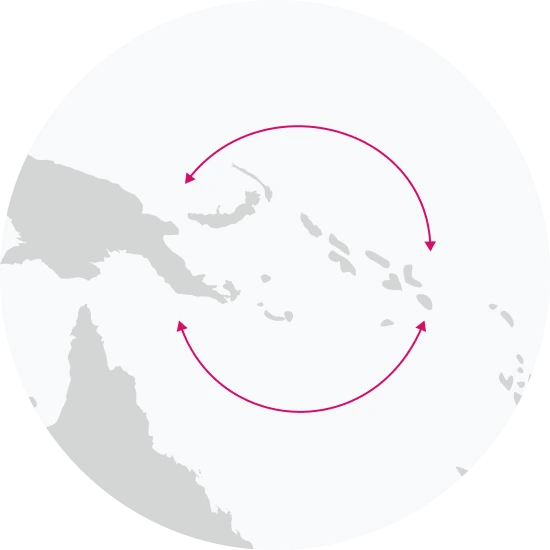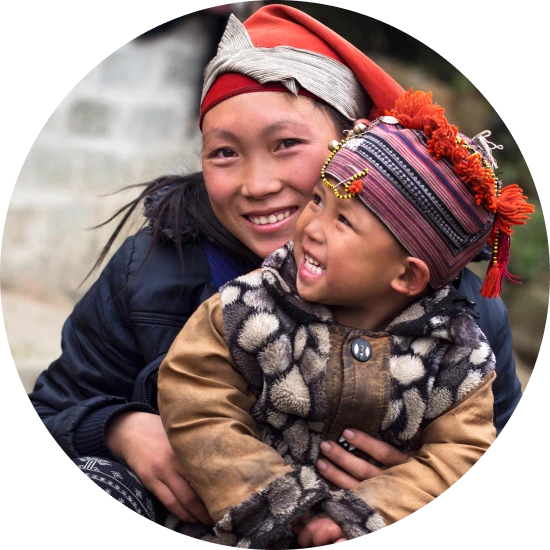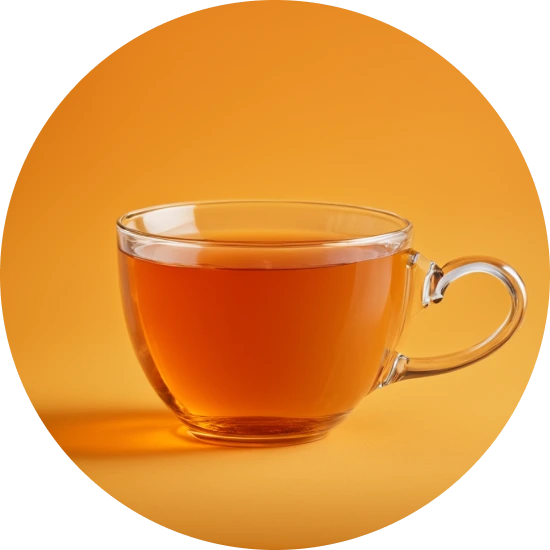Explore the Family Name Tsang
The meaning of Tsang
Chinese: 1. Cantonese form of the surname 曾, see Zeng. 2. alternative Mandarin form of the surname 蒼, see Cang. 3. Mandarin form of the surname 臧, see Zang. 4. variant Romanization of the surnames 張 and 章. See Zhang 1 and 2. 5. variant Romanization of the surname 蔣. See Jiang 2. Some characteristic forenames: Chinese Hing, Chi, Wai, Kwan, Kwok, Kwong, Man, Sing, Wing, Yee, Cheong, Ping, Chung, Kwok Fai, Kwok Wai, Moon, Shiu, Tam, Tuk, Tuong, Yiu, Yuet. Vietnamese Hung, Lap, Sau, Hoi, Lam, Tung, Chau, Khanh, Kiet, Lien, Linh, Mau.
Dictionary of American Family Names, 2nd edition, © Oxford University Press, 2022.
How common is the last name Tsang in the United States?
Based on the data from the Decennial U.S. Census, the surname Tsang has seen a rise in popularity between 2000 and 2010. In 2000, Tsang was ranked 5392nd in popularity and rose to 5103rd by 2010, marking a 5.36% increase in its ranking. The number of people with the surname Tsang also saw an upward trend during this period, rising from 5943 to 6860, a significant growth of 15.43%. The proportion of people with the surname Tsang per 100k population also increased slightly from 2.2 to 2.33, indicating a 5.91% change.
| 2000 | 2010 | Change | |
|---|---|---|---|
| Rank | #5,392 | #5,103 | 5.36% |
| Count | 5,943 | 6,860 | 15.43% |
| Proportion per 100k | 2.2 | 2.33 | 5.91% |
Race and Ethnicity of people with the last name Tsang
In terms of ethnicity, the data from the Decennial U.S. Census shows that the majority of individuals with the surname Tsang identify as Asian/Pacific Islander, though there has been a slight decrease in this group from 95.52% in 2000 to 94.39% in 2010. Individuals identifying as two or more races saw a moderate increase from 1.90% to 2.06%, while those identifying as White also increased slightly from 1.82% to 2.17%. The Hispanic ethnic identity saw the most significant growth, increasing by 34.43% from 0.61% to 0.82%. Notably, in 2010, individuals identifying as Black and having the surname Tsang appeared in the data for the first time, accounting for 0.57%.
| 2000 | 2010 | Change | |
|---|---|---|---|
| Asian/Pacific Islander | 95.52% | 94.39% | -1.18% |
| White | 1.82% | 2.17% | 19.23% |
| Two or More Races | 1.9% | 2.06% | 8.42% |
| Hispanic | 0.61% | 0.82% | 34.43% |
| Black | 0% | 0.57% | 0% |
| American Indian and Alaskan Native | 0% | 0% | 0% |
Tsang ancestry composition
23andMe computes an ancestry breakdown for each customer. People may have ancestry from just one population or they may have ancestry from several populations. The most commonly-observed ancestry found in people with the surname Tsang is Chinese, which comprises 76.4% of all ancestry found in people with the surname. The next two most common ancestries are Chinese Dai (7.3%) and Vietnamese (4.5%). Additional ancestries include British & Irish, Japanese, French & German, Korean, and Scandinavian.
Ready to learn more about your ancestry? Get the most comprehensive ancestry breakdown on the market by taking our DNA test. Shop 23andMe
| ANCESTRY BREAKDOWN | COMPOSITION |
|---|---|
| Chinese | 76.4% |
| Chinese Dai | 7.3% |
| Vietnamese | 4.5% |
| Other | 11.7% |

Possible origins of the surname Tsang
Your DNA provides clues about where your recent ancestors may have lived. Having many distant relatives in the same location suggests that you may all share common ancestry there. Locations with many distant relatives can also be places where people have migrated recently, such as large cities. If a large number of individuals who share your surname have distant relatives in a specific area, it could indicate a connection between your surname and that location, stemming from either recent ancestral ties or migration.
Based on 23andMe data, people with last name Tsang have recent ancestry locations all within China.
| RECENT ANCESTRY Location | Percentage |
|---|---|
| Fujian, China | 85.10% |
| Guangdong, China | 85.10% |
| Jiangsu, China | 84.50% |
| Zhejiang, China | 84.50% |
| Shanghai, China | 83.50% |
What Tsang haplogroups can tell you
Haplogroups are genetic population groups that share a common ancestor on either your paternal or maternal line. These paternal and maternal haplogroups shed light on your genetic ancestry and help tell the story of your family.
The top paternal haplogroup of people with the surname Tsang is O-F856, which is predominantly found among people with East Asian & Indigenous American ancestry. Haplogroup O-F856 is descended from haplogroup O-M1359. Other common haplogroups include O-Z23266 and O-F8, which are predominantly found among people with East Asian & Indigenous American and East Asian & Indigenous American ancestry. Other surnames with similar common haplogroups are: Zeng, Wu, Chen, Xu, Huang, Chang, Gong, Chan, Tang, Tan.
The most common maternal haplogroups of people with Tsang surname are: F1a1, F2, M7b. These most commonly trace back to individuals of East Asian & Indigenous American ancestry.
 Paternal Haplogroup Origins O-M1359
Paternal Haplogroup Origins O-M1359
Your paternal lineage may be linked to many of the Massim groups of Papua New Guinea
Haplogroup O2a is prevalent among Massim ethnic groups, including the populations of Airara, Nomanby, the eastern tip of the mainland, the Trobriand Islands, Gawa, Woodlark, the Laughland Islands, and western Calvados. While Papua New Guinea has been inhabited for over 50,000 years, the Massim may have arrived in the last 2,000 years. Today, these populations remain connected through a traditional island trading system called the Kula Ring. Under this exchange system, residents ensure that goods that are only available on some islands, but that are vitally needed in other islands, are shared among the island populations. Only Massim men participate in the Kula exchange system, and it is common for men to be away from home for months at a time when trading with men from other islands.
Your maternal lineage may be linked to the Hmong-Mien
Haplogroup F is particularly common in populations of Hmong-Mien speakers, one of the major language families in East Asia. This group includes the Lahu, Hmong, Lao, and Mien of southern China and Southeast Asia. Many of these groups are considered ethnic minorities in their countries, including in China, Vietnam, and Thailand.During the Vietnam War, from 1953 to 1975, the United States Central Intelligence Agency recruited many of the Hmong, Lao, Mien, and Lahu to fight for American interests in Laos against the North Vietnamese and the Pathet Lao. When the North Vietnamese and Pathet Lao gained control of the region, members of the ethnic groups recruited by the US were targeted, forcing many of the Hmong-Mien to flee the country. Many refugees resettled in the United States, especially in California and along the western seaboard.

What do people with the surname Tsang have in common?
Spoiler alert: it's complicated. People with the same last name are usually no more genetically similar than a randomly sampled group of people from the same population. That said, people with the same surname are more likely to have similar ancestries than randomly sampled individuals. The reason is the tendency of people with similar cultural or geographical backgrounds to preferentially mate with one another. That's why people who share a surname may be more likely to share traits and tendencies in common than people within the general population. Check out the percentages below to see the prevalences of tastes, habits, and traits of people with your surname compared with prevalences among 23andMe users.
Preferences
Traits
Habits
Wellness
Are health conditions linked to the last name Tsang?
The short answer is that, if there is an association between surname and health, it's usually more about your ancestry than your name. Individuals with a given surname are no more genetically similar than the general population but often have similar ancestries. The populations of people associated with those shared ancestries often have sets of genetic variations, also known as alleles, in common. Some of those alleles are associated with a greater likelihood of developing certain diseases.
Disease variant frequency by ancestry
Disease allele frequencies in populations associated with the surname Tsang are shown below. Important Note: not everyone with a disease allele will develop these health condition



















